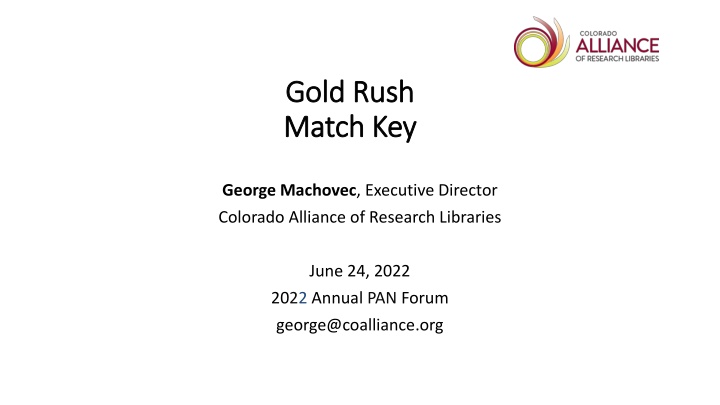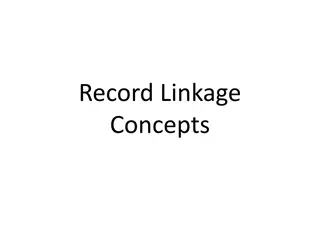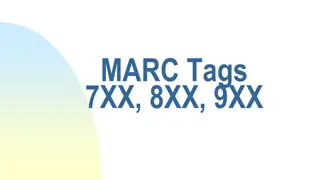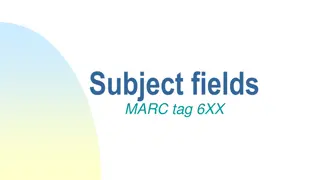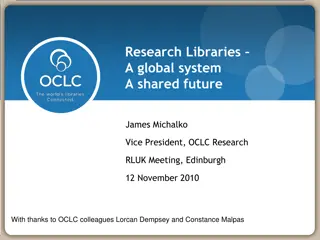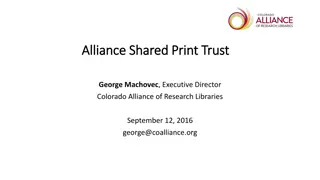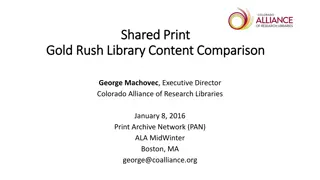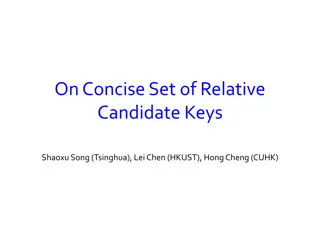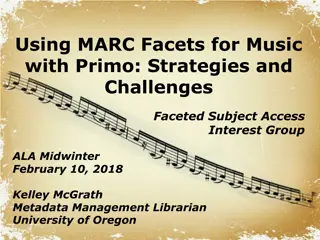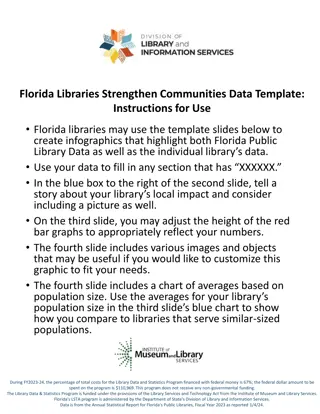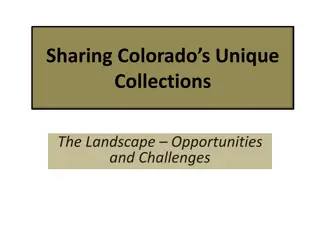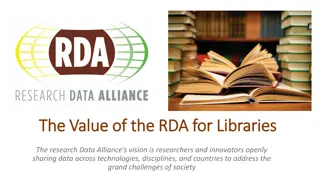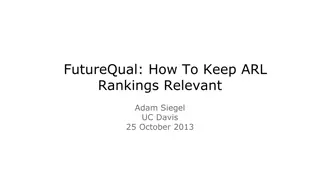Colorado Alliance of Research Libraries: MARC Record Matching System Overview
Designed and hosted by the Colorado Alliance of Research Libraries, the Gold Rush Analytics Technical Overview showcases a cost-effective system utilizing open-source software with tailored solutions. The Matching MARC section details the methodology for matching records, emphasizing the pre-built match key for real-time functionality across various library use cases. Additionally, a selection of key elements in the match key and the unique indexing process for libraries are highlighted. The system leverages the 880 encoding rather than 245 for transliteration efficiency.
Download Presentation

Please find below an Image/Link to download the presentation.
The content on the website is provided AS IS for your information and personal use only. It may not be sold, licensed, or shared on other websites without obtaining consent from the author.If you encounter any issues during the download, it is possible that the publisher has removed the file from their server.
You are allowed to download the files provided on this website for personal or commercial use, subject to the condition that they are used lawfully. All files are the property of their respective owners.
The content on the website is provided AS IS for your information and personal use only. It may not be sold, licensed, or shared on other websites without obtaining consent from the author.
E N D
Presentation Transcript
Gold Rush Gold Rush Match Key Match Key George Machovec, Executive Director Colorado Alliance of Research Libraries June 24, 2022 2022 Annual PAN Forum george@coalliance.org
Gold Rush Analytics Technical Overview Developed and hosted by the Colorado Alliance of Research Libraries Highly modified Blacklight/Solr implementation Uses mostly open-source software with a few exceptions (e.g. charting) Servers located at the University of Denver Much less expensive than AWS hosting at this point Code is backed-up in GitHub Offered as a service by the Colorado Alliance at cost No startup fees Friendly contract terms
Matching MARC How do we match records in the system? No common record source OCLC, older RLIN records, vendor supplied, other sources (e.g. Skyriver) Decided to create a match key based on universal elements from the MARC record Will pre-build the match key during record loading so the system works in real-time Supporting different use cases Shared Print programs General library analytics for weeding, shared storage, prospective collection development, backfile ebook purchasing, single & comparative analytics, resource sharing, etc.
Selected Elements in Match Key Title Publication Year 008, 264c or 260c Edition Statement 250 $a Publisher Name 260 or 264 $b NO matching is done with ISBN, ISSN or OCLC # Match key ends with an e or p to separate electronic and print 245 $a $b (first 70 characters) General Media Description 245 $h (pre-RDA) Type '_' Leader Title Part 245 $p Title Number 245 $n
Note that the match key ends in a p or e to separate print from electronic resources
4 libraries have matched up. Select library to see their unique MARC record A master indexing record is selected based on encoding level. MARC records from all sites are linked to the match key
Match key is using the 880 rather than 245 due to transliteration issues
Challenges in Match Key Building Speed of Indexing Examples of normalization issues Put all in lower case Getting rid of unwanted spaces Getting rid of special characters Leading and following special characters deleted Handling non-English vernacular (using 880 when available) Date selection (008, 264c, 260c), handling reprint dates rather than original dates Normalizing publisher names Normalizing edition statements to integers (e.g. Second, 2nd, 2d)
Pros & Cons of Match Key Approach Pros Works quickly & efficiently in application when created Creates a universal hash tag representing the record Understandable to librarians Works across all MARC formats Concept could be adapted in a bibframe data model Not dependent on OCLC #s, ISBNs, ISSNs, LCCNs or other numbers that may not exist Can tweak and change as needed in the next indexing run Cons Significant computing resources needed We run multiple simultaneous streams to speed up match key creation Match key index must be rebuilt if there is a change in normalization or elements used Not flexible for fuzzy matching or on-the- fly changes Will be difficult to use across different platforms unless organizations use the exact same code due to differences in normalizing Relying on libraries to not mess with the MARC record standard in their catalog
Let us know if you want more detailed documentation or code George Machovec Executive Director Colorado Alliance of Research Libraries george@coalliance.org
